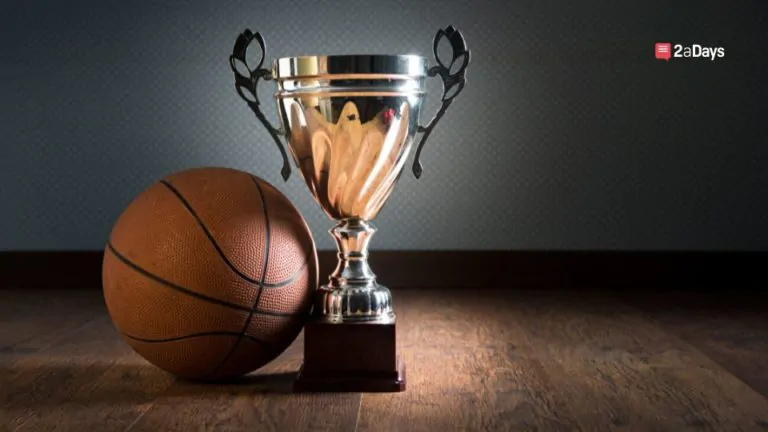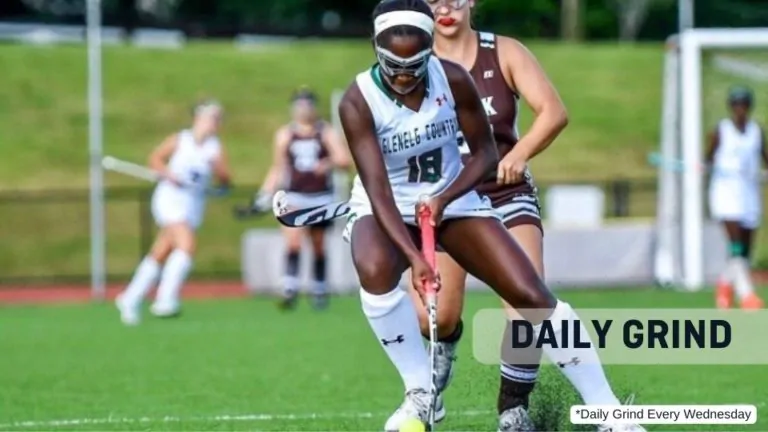Edited by Jaime Evers
An opportunity to join a Division I program with a history of winning championships and producing Olympic medalists, world champions, and world record holders is a dream for many young swimmers. The past success of top programs, however, is not always an accurate reflection of their current reality. The promises of a fresh coach looking to rejuvenate a team and the potential of writing a new chapter for a celebrated program can create an attractive recruiting destination. The recruiting process, or in this case, the recruiting horror story™ however, does not always reveal all facets of a coach and their program. Seemingly minor red flags which hint at existing cultural problems can be easily brushed aside amid the excitement of commitment. In this instance, rating coaches may have been able to save many athletes from an unhealthy and tumultuous athletic career.
The Recruiting Process Begins
AJ was the top swimming recruit in her class coming out of Alabama. She was an Olympic Trials qualifier and her versatility as a sprinter made her an especially valuable asset for any team. With this background, she had over 50 schools reach out to her including leading programs in the nation. Going through the recruiting process, AJ had her eyes set on moving out of her home state of Alabama and embarking on a new opportunity to continue her swimming career. Some of the schools she was talking to included UCLA, Louisville, Ohio State, and Northwestern.
As recruits should, AJ kept her options open and went on an unofficial visit to a prominent in-state school. She had never seriously considered this option as the previous coaching staff was not the right fit for her and she still preferred a move out of state. This visit completely changed her mind, however, as she fell in love with the beautiful campus and the world-class facilities. Not just the swim team, but the whole school advertised a strong family environment. The new coaches were extremely kind and showed an individual care for AJ, demonstrating this family culture. Inheriting a program with a storied history, the coaches sold their vision for an exciting rebuild where AJ could make an impact. They pushed the mantra of “New Plains” which built upon the swim team's past tradition. This appealed to AJ who was drawn to the opportunity to contribute to a building team that had great potential rather than joining an established, well-oiled machine that cranked out swimmers. With this team, she could be a key part of something new.
Related school ratings: UCLA, Louisville, Ohio State, Northwestern
“This Was the Right Fit”
A meeting in the coach's office to discuss logistics convinced AJ that this was the right fit. The location was perfect, being close to home. The coaches were ushering in a new era for the program where AJ could contribute to a burgeoning team. She stepped outside with her mom and was overwhelmed by the realization that this was the perfect place to continue her career. While her mum was not yet sure, AJ had already made her decision. She gathered herself and returned to the office. Seeing her emotions, the coach commented on the fact that AJ had been crying and claimed that he tended to have this kind of effect on women – an odd boast, but AJ brushed it off. Later that night at a dinner with the women's team, however, the coach brought the comment up again and felt the need to talk further about this effect on women he claimed to possess. This only seemed to be an inappropriate attempt at humor and AJ still decided to commit to this school, looking forward to the direction of the program.
The Challenges of a New Training Program
AJ joined the summer before her first fall semester at the school, prepared to train with the team before the season started. Entering this period, AJ was “nervous but overwhelmingly excited to be there and start training.” But, while she was a fast recruit, she was thrown into a situation surrounded by professional swimmers and older athletes. In addition, the team was training long course meters rather than short course yards, a significant change in the swimming world. Throughout her entire swimming career, AJ was used to training in a 25-yard pool, so the transition to a 50-meter pool was a daunting challenge. Being a sprint specialist, AJ struggled through the tough training block, but her mindset did not allow her to quit. She was surrounded by so many accomplished swimmers that pushing through was the only option.
A summer of piling up the miles in the pool took a physical toll on AJ, while she also endured antagonistic treatment from the coaches. In her last practice of the summer, she was grouped with two professional swimmers and the two best male butterfliers on the team for a butterfly set. Inevitably, the stronger and more seasoned athletes lapped her and, as swimming etiquette commands, AJ stopped at the wall and allowed her teammates to pass. This sensible decision, however, was met by abusive and aggressive language from a coach, threatening her from stopping again. What choice did she have? AJ continued and finished the set.
Related: Five Tips to Navigate Life as a Student-Athlete
Coaches' Inappropriate Humor a “Staple of Their Behavior”
The next day, AJ was diagnosed with mono and had to take a break from training. The girls on the team asked where she was and the coach joked that they had body bagged her, reveling in the fact that his training had taken such an extreme toll on an athlete. First appearing as a red flag during recruiting, the inappropriate humor of the coaches was a staple of their behavior and contributed to a degrading culture.
The time off allowed AJ to reflect and recover from a grueling summer. As a young swimmer who had not yet had the opportunity to compete, she was not in the position to complain about the treatment she had received from the coaches. She decided to persevere. The head coach's own swimming career had ended due to mono and an assistant coach had been hospitalized with the infection. Because of this, AJ expected a level of understanding once she was able to get back in the pool. This was far from true.
Rejoining the team, AJ was repeatedly told by the coaches that she “wasn't the same athlete” that she had been in the summer. AJ's respiratory system was still struggling from being sick, a crippling challenge in a sport where the ability to breathe is already limited. Despite this, the coaches took an even harsher approach, kicking AJ out of practice and forcing her to watch the team repeat practices. The coaches called her the anchor of the team and complained that she was weighing the team down. For the next two months, AJ, along with two other swimmers, were made into the laughingstock of the program through these open and direct insults.
A Chance to Prove Herself
Despite being constantly belittled at practice, AJ continued to perform well at dual meets, scoring points in relays and individually. While the training environment was unhealthy, her results were still positive.
When conference championships came around in February, AJ swam lifetime bests, was a top performer on the team, and was part of a record-breaking relay. Everything that she had endured up until this point appeared to be worthwhile. She qualified for NCAAs and had earned the opportunity to finally prove her value to the coaches and the team. The cancelation of NCAAs due to the pandemic dashed her hopes. The only goal she had suffered for and the competition that the coaches had elevated as most important was taken away.
Related: Keeping up with the Conferences | A Glimpse at Rapid Changes in College Sports
Mental Health vs Swimming
AJ returned home and was diagnosed with depression as a result of her environment. Swimming had consumed her life. The coaches drilled the idea that a person's worth was purely tied to their athletic performance. This psychological messaging seeped into other aspects of AJ's life. She could not enjoy anything else as her worth had been bound to swimming.
During this enforced pause, AJ struggled with her self-worth and values as a result. She hoped that everything would improve once training could resume. The success she had achieved at the conference championships after the challenging year had reinforced the need to persevere. Athletes are taught to get comfortable with being uncomfortable and this mindset also emerges when dealing with emotional challenges. If results were still coming in the pool, then the severe psychological consequences were just a necessary evil. Once again, a return to training did not see any improvements, but the opposite.
Related: Mental Health Webinar with 2aDays, Brandon Marshall, The Virgo Project, and the Hidden Opponent
The Cycle, Continued
Returning as a sophomore, AJ saw the treatment she had received the previous year repeated with the new freshmen. Having gone through the same experience without anyone to help, AJ felt a sense of solidarity. She actively sought out to support the incoming freshman, recognizing the toll this treatment was having on them and fearing that they would suffer the same way that she had.
The coaches continued to neglect a healthy well-rounded lifestyle. They told AJ that she was hanging out with the wrong people, despite the fact that her friends were all athletes on the swim team whom the coaches had recruited themselves. If this behavior continued, then she was “absolutely going to fail.” AJ would sleep at 8 every night and avoid all social gatherings to protect the team from the risk of the pandemic. This worsened AJ's anxiety, and she lost 20 pounds due to stress and the constant scrutiny from her coaches in all aspects of her life.
Making a Stand
Early in the fall semester, members of the team decided to take collective action. A 24-page document of their individual statements about their experiences with the coaches was delivered to the school's athletic director with the promise that the individuals involved would remain anonymous. Meanwhile, the treatment on the pool deck continued. AJ's best friend, who was the captain of the team, was stripped of her captaincy. After this event, the coaches made a conscious effort to suppress any opposition from their athletes. AJ and her friend were called out in front of the team and labeled as bullies for disputing the stripping of her captaincy. The coaches openly created a divide amongst the team, stating to the athletes that “You are either with me [the coaches] or against me, and there is no place for you on this team if you choose the latter.” Two weeks after the submission of the collective document, the coaches held a meeting with the sprint group. They revealed that they knew the names from the document and what was said, claiming that all of the information was false. They threatened that if any athlete spoke up, they would never swim again. The promise of anonymity had been broken, preventing swimmers from speaking up out of fear for their place on the team.
Throughout the fall semester, AJ spoke to the athletic director, faculty representative, and athletic compliance about the situation but no constructive action was taken. The athletic director organized a meeting with AJ and her coaches. They were to go through AJ's points of concern, which they labeled a “list of allegations,” implying a lack of proof. The collective team document which had been submitted and the words of her teammates were all ignored. At this meeting, the coaches berated her and continued to accuse her of making up the entire situation. This meeting, which was supposedly intended to address AJ's concerns, questioned her honesty and exploited her vulnerability.
Neglected by Not Only the Coaches, but Administration
Towards the end of the year, AJ decided to opt out of the season, as many of her teammates had done for Covid-related reasons or otherwise. This request was denied by the school's compliance office. Seeking clarification, she approached the athletic doctors who stated that if an athlete stubbed their toe, they could opt-out. There was no reason for her decision to be refused.
In January, AJ received an email stating that her scholarship had been taken away. This was the final straw and she decided to leave. After attempting to fill out a form on the school database, she found that her account had already been suspended by administration. She had to be reinstated before transferring out. Throughout her experience at the school, AJ was not only failed by her coaches, but also by the athletic and administrative staff. Drawn to the team and the school by the strong family environment, this turned out to be a facade.
A Happy Ending
Fortunately, AJ left this unhealthy environment and has landed at a program with a supportive and understanding coaching staff. She is now excited to regain her love for swimming and be part of a program where she can grow as an individual.
* Originally published on August 21, 2021, by Connor Xu







